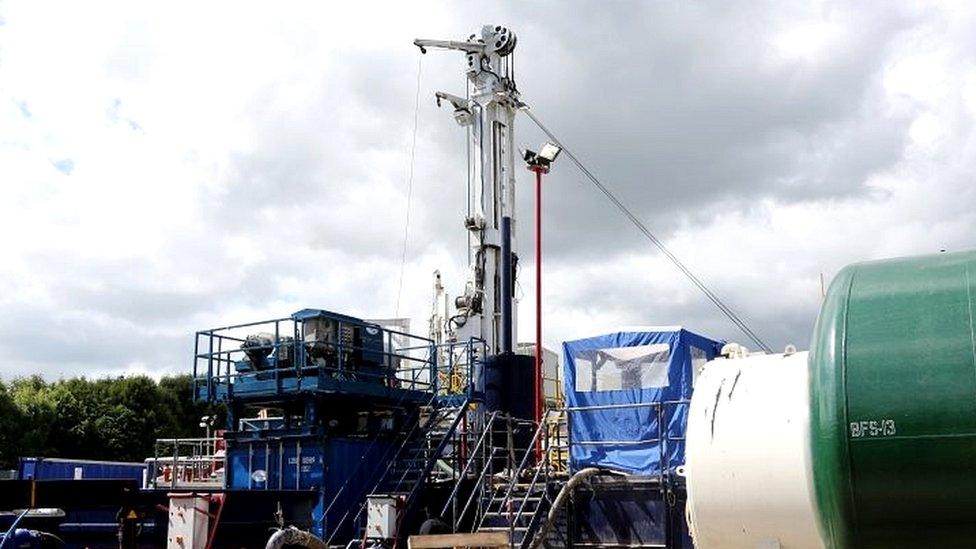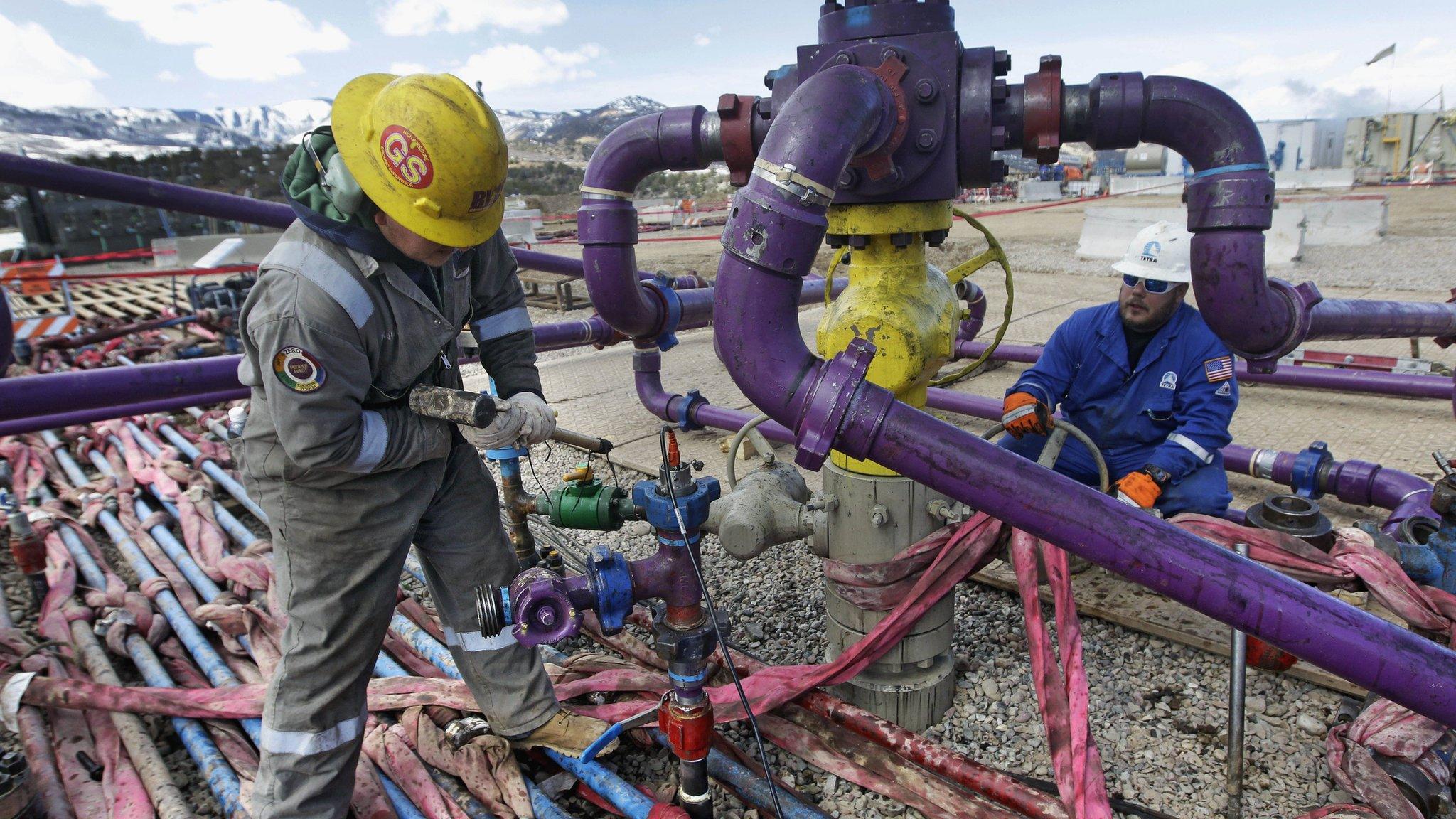Fracking firms to test ground without planning permission
- Published

The government is set to remove another obstacle to the exploration for shale gas deposits in the UK.
Fracking firms will no longer need planning permission to drill boreholes to monitor water quality and carry out seismic monitoring.
The government says the same safety rules for oil and gas exploration will apply - and the use of explosives will be limited to avoid nuisance.
But critics say it will rob local people of a say and cause disruption.
A spokesman for industry body United Kingdom Onshore Oil and Gas said: "This simply brings the onshore oil and gas industry in line with water companies and other industries which drill dozens of boreholes a year and perform subsurface monitoring, including seismic surveys, as a matter of course, with no lasting impact on the environment and hardly anyone noticing."
'Permission creep'
But anti-fracking campaigners said the changes would give local people less control over what is happening in their area.
In a submission to a government consultation on the changes, one group said: "Seismic testing should be considered only as part of a planning application to drill, explore, test, extract".
Kathryn McWhirter, of Frack Free Balcombe, who wrote the submission, said her main objection was that new planning rules would pave the way for full scale fracking.
"It is a foot in the door. It is the beginning of 'permission creep,'" she told the BBC News website.
"It is taking views away from local councils and local people - and then soon they will have no say at all."
People in the North West of England have complained about tremors and booming noises in their homes, according to the Chester Chronicle, external.
The firm responsible, Igas, told the newspaper: "The gathering of seismic information has been a common and routine operation in the UK for some 40 years now."
Drilling rigs
The Department for Communities and Local Government said, in its response to the consultation, external, published on 17 December, that the move was needed to "enable monitoring and investigation work to be undertaken to inform any future planning application".
Other changes announced by the department will allow for more extensive testing of drinking water impacts, making the move to full-scale production safer.
But anti-fracking campaigners say the planned 24 month water testing regime is not nearly long enough to establish useable data.
The plans, contained in secondary legislation, are due to come before Parliament shortly.
They will also give firms the green light to build 15 metre high drilling rigs to test for methane in groundwater - one of procedures that has to be carried out before commercial fracking can begin. The current maximum height is 12 metres.
Firms will also be allowed to sink boreholes into old mine workings without planning permission.
The DCLG said: "The government considers that it is important to obtain seismic data to inform any potential proposals for petroleum exploration, and it would be beneficial to be able to do this early in the process.
"Having carefully considered the views expressed in response to consultation and the potential impacts, the government considers that it is appropriate to proceed with this proposal."
- Published15 December 2015
